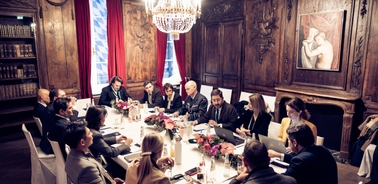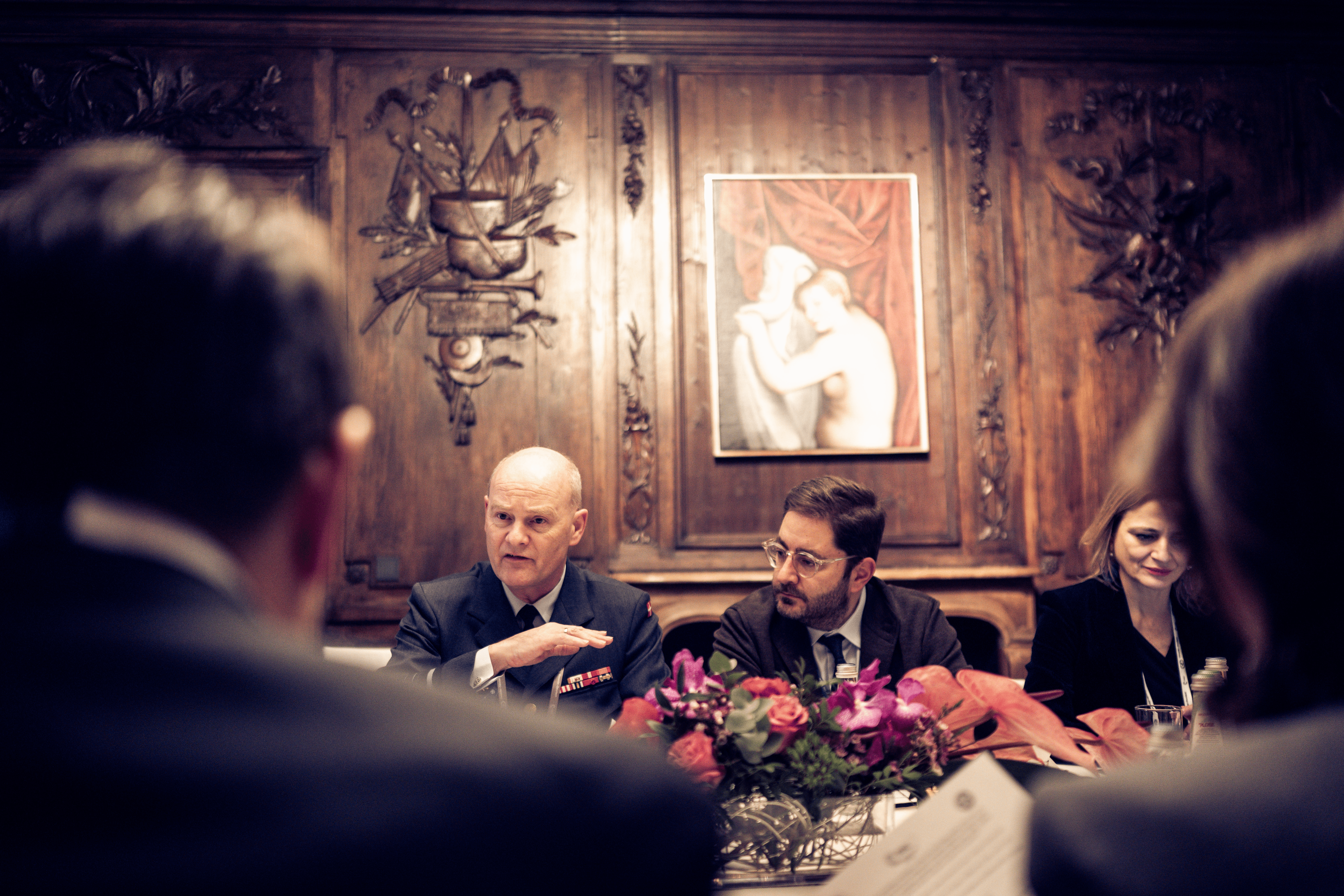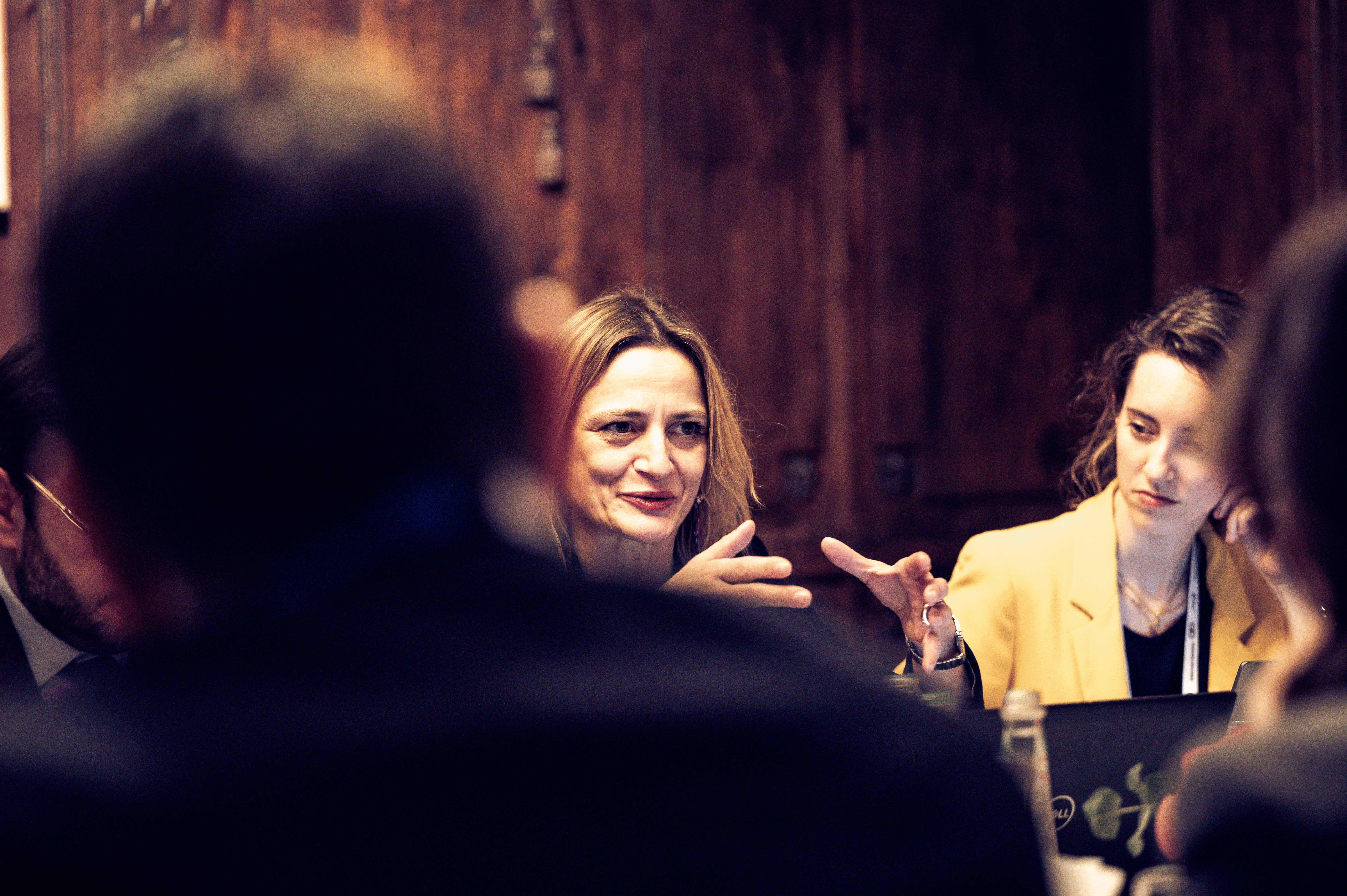- Home
- News And Events
- News
- Discussing Deep Tech For Defense In Europe At The 2025 Munich Security Conference
Discussing Deep Tech for Defense in Europe at the 2025 Munich Security Conference

On February 15, 2025, we returned to the Munich Security Conference, where we co-hosted a high-level roundtable discussion on the challenges and strategies for building a robust deep-tech innovation ecosystem for defense in the EU and NATO.
Organized in collaboration with the NATO Defense College (NDC), the event brought together policymakers, industry leaders, investors, and academics from key institutions, including the North Atlantic Treaty Organization (NATO), the Defence Innovation Accelerator for the North Atlantic (DIANA), the NATO Innovation Fund (NIF), the European External Action Service, the Joint European Disruptive Initiative (JEDI), IBM, Planet Labs, Accenture, and Sequoia Capital.
The discussion was moderated by CGC Director Irene Blázquez Navarro and NDC Olesya Vinhas de Souza and featured prominent participants such as:
- James Appathurai, Deputy Assistant Secretary General for Innovation, Hybrid, and Cyber, NATO.
- Ana Paula Assis, Senior Vice President of Europe, the Middle East and Africa and Growth Markets, IBM.
- Florence Gaub, Director of Research Division, NATO Defence College
- Dennis Gyllensporre, Lt. General (ret), Chair of DIANA Board of Directors
- André Loesekrug-Pietri, Chairman, Joint European Disruptive Initiative; Member of the Security Innovation Board, Munich Security Conference
- William Spencer Marshall, Co-founder and Chief Executive Officer, Planet Labs
- Jovita Neliupšienė, Ambassador of the European Union to the United States of America; former Vice Minister of Foreign Affairs of the Republic of Lithuania
- Max A.L.T. Nielsen, Lieutenant General; Commandant, Defense College of the North Atlantic Treaty Organization
- Delphine Pronk, Chair of the Political and Security Committee, European External Action Service
- Bryan Rich, Senior Managing Director and Global AI Lead for Health, Public Sector and Defense, Accenture
- Patrick Schneider-Sikorsky, Partner, NATO Innovation Fund
- Jason Hsu, Senior Research Fellow at The Ash Center for Democratic Governance and Innovation Harvard Kennedy School.
- Don Vieira, Partner and Global Chief Policy Officer, Sequoia Capital
In his opening remarks, Manuel Muñiz, Provost of IE University and Chair of the Center for the Governance of Change noted how:
"We are witnessing how Artificial Intelligence, Quantum Computing, Advanced Materials, and Biotechnology are redefining military capabilities and the ways we respond to emerging threats. As these technologies advance, global powers are accelerating their efforts to lead in technological supremacy, raising critical questions about security, sovereignty, and economic competitiveness, particularly for Europe."
Participants engaged in a candid discussion about the key obstacles hindering the development of deep tech in defense, including:
- Uncertainty surrounding the business viability and scalability of deep tech innovations
- A risk-averse investment culture in Europe, particularly regarding frontier technologies with long-term financial returns
- Regulatory, procurement, and ethical barriers, which pose unique challenges in the defense sector
With an increasingly fractured global landscape, as underscored by the realpolitik witnessed in this year MSC, the shifting transatlantic relation, and the need for greater European competitiveness and defense - as highlighted by the Mario Draghi and Enrico Letta reports - tackling this portfolio is more urgent than ever.
In this context, Irene Blázquez Navarro, Director of the Center for the Governance of Change and cohost of the discussion, underscored the urgent need for a well-balanced and carefully calibrated strategy to foster deep tech innovation in defense across the EU and NATO. She emphasized that success hinges on three key pillars:
- Ideas – fostering groundbreaking research and technological breakthroughs
- Business opportunities – ensuring market viability and scalability
- Investment – mobilizing capital with the right strategic vision
The Center for the Governance of Change strongly advocates for a bold, forward-looking strategy to accelerate deep tech growth. This strategy must be underpinned by high-risk public and private investment to drive technological innovation, strengthen transatlantic security, and enhance Europe's strategic autonomy.
To harness the potential for a robust defense sector shaped by frontier technologies, it is essential to build bridges between the present and the future. This requires not only considering the "now and next," but also exploring the entirely new.
The Center for the Governance of Change remains committed to driving impactful discussions and policy recommendations in this space. Insights from this round table will serve as the basis for a policy brief on the topic that will be published in the coming weeks.

